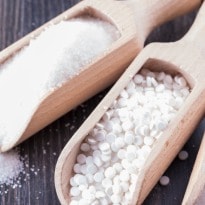All my office colleagues who drink copious amounts of diet drinks without a care in the world for their health, are all looking at me with that 'I told you so' look. The reason is the latest scientific studies that's been conducted on animals and humans regarding aspartame and its breakdown products. Here's a quick look at why diet food might leave a sweet aftertaste in your mouth.
1. The European Union has asked the Italian based European Food Safety Authority (EFSA) to bring forward the full re-evaluation of the safety of consuming aspartame as a food additive from 2020 to 2013, after concerns were raised by Members of the European Parliament. 2. The study by EFSA concludes that "Aspartame does not harm the brain, the nervous system or affect behaviour or cognitive function in children or adults. Even when it comes to pregnancy, the Panel has concluded that there was no risk to the developing fetus from exposure to phenylalanine derived from aspartame at the current acceptable current intake.
3. However aspartame is not safe for people suffering from PKU or phenylketonuria, as people suffering from this disease are unable to metabolise the amino acid phenylalanine effectively, leading to the accumulation of potentially harmful levels 4. EFSA has found that at the current EU levels, the acceptable daily intake for aspartame is 40mg per kg of body weight. We are talking about a normal man weighing 70 kilos can now safely consume up to 12 cans of diet coke without a worry in the world. 5. It's a well known fact that the breakdown products of aspartame are phenylalanine, methanol and aspartic acid, and these are also naturally present in other foods. For example, Phenylalanine is an amino acid making up proteins found in many foods. The other product methanol is found in fruits and vegetables. The contribution of breakdown products of aspartame to the overall dietary exposure to these substances is low. 6. The artificial sweetener Aspartame is 200 times sweeter than sugar and is used in more than 6,000 food products across the world. 7. It got EU food approval in 1994 to be used as a food additive. Aspartame is a sweetener authorised as a food additive in the EU. 8. You can detect it in your food or drink by looking out for E 591. 9. It is found in a wide in a variety of foods and beverages, like soft drinks, desserts, chewing gum, confectionary and as a table top sweetener. 10. Earlier, studies were done that linked aspartame to health risks such as headaches, memory loss, cancer, premature birth etc.
Disclaimer
All reviews are strictly personal opinion of the authors. The same should not be construed as the opinion or policy of NDTV. Always do your own research on products and companies before using a product you choose. NDTV, its affiliates and its management does not claim responsibility for any of the products/ or companies discussed on this site.









